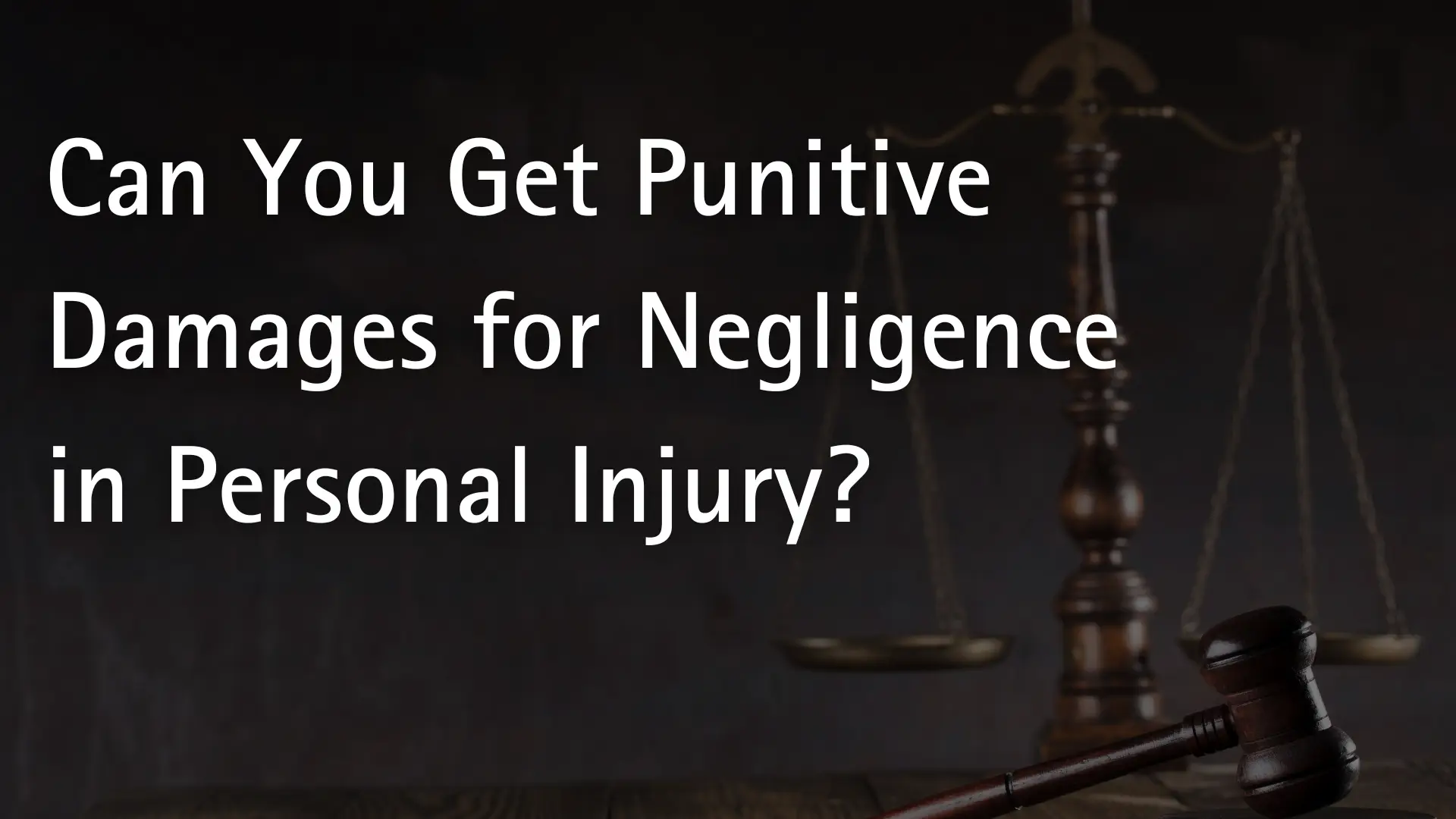Seeking compensation for losses is the purpose of a personal injury case, especially when someone else’s negligence causes your injuries. Can you get punitive damages for negligence? In a successful lawsuit, this generally covers expenses like:
- Medical bills
- Lost wages
- Pain and suffering
- Loss of enjoyment of life
- Property damage
This money is meant to help restore your life to where it was before your accident as far as is possible. However, some heinous circumstances could allow you to recover additional compensation, known as punitive damages.
Courts award punitive damages when a defendant’s actions, intentions, or lack of remorse are reprehensible. It’s important to note that the purpose of punitive damages is not intended to compensate an injured party for injury or losses. Instead, punitive damages serve the sole purpose of punishing a defendant for particularly egregious conduct to deter them or others from ever engaging in similar harmful behavior again. You can get punitive damages in cases where negligence caused the harm.
When Are Punitive Damages Awarded?
Montana law sets a high bar for a court to award punitive damages for negligence. To receive punitive damages, injured parties or their attorneys must prove by “clear and convincing evidence” that the defendant acted with actual malice or actual fraud. This is a more rigorous standard than the “preponderance of the evidence” standard required to win a personal injury case.
- Actual malice implies that the defendant acted with evil intent, ill will, or conscious and deliberate disregard for the rights and safety of others.
- Actual fraud involves intentional misrepresentation or deceit with the specific intent to cause harm.
Courts reserve punitive damages for cases where the defendant’s actions were so reckless, malicious, or intentional that they warrant extra punishment beyond simply compensating the victim for their injuries and losses.
Punitive Damages in Negligence Cases
Simple negligence typically does not lead to punitive damages. In most personal injury cases, punitive damages are not available. However, there are situations where negligent conduct can be so extreme that it’s categorized as malice or intentional fraud. To help illustrate what these special conditions may look like, these are theoretical examples:
- A drunk driver who causes a severe accident after repeatedly driving under the influence demonstrates a conscious disregard for the safety of others.
- A trucking company that knowingly hires a trucker with an abysmal driving record and insufficient training to operate a commercial truck who then causes a wreck that kills someone has egregiously ignored their duty of care to others.
- A property owner ignores dangerous conditions on their property, leading to a severe injury to a visitor, displaying a blatant disregard for their duty of care.
Are There Limits to Punitive Damages for Negligence?
Yes, Montana law places limits on punitive damages. Like many states, Montana has a cap on its punitive damages, meaning they have an imposed limit. The state of Montana caps punitive damages at less than $10 million or 3% of the defendant’s net worth in most cases.
These caps are in place for several reasons. For one, they help prevent excessive punishment for the defendant. The limits also help ensure that punitive damages are proportionate to the defendant’s financial resources and that the likelihood of payment is realistic.
There are additional factors to consider when estimating the amount of punitive damages. In the state of Montana, the court will often take into consideration:
- The severity of the harm caused by the defendant’s conduct. More severe harm generally leads to higher punitive damages.
- The reprehensibility of the defendant’s actions. The more morally blameworthy the conduct, the greater the need for punishment.
- The defendant’s financial resources. Punitive damages should be substantial enough to have a deterrent effect but not so high as to bankrupt the defendant.
- There is a need to deter the defendant and others from engaging in similar misconduct in the future.
Fighting for punitive damages can take a lot of work. Doing so requires a legal team who knows how to use robust evidence and case-building skills to prove that malice and fraud occurred in your case.
Contact Travis & Brann, PLLP for Skilled Personal Injury Representation
If you believe you have a case that deserves punitive damages, it’s essential to consult an experienced personal injury attorney in Kalispell. At Travis & Brann, PLLP, we know how easily an accident can disrupt your life. In mere seconds, you may find yourself in physical pain, facing long-term complications and overwhelming medical expenses. When this happens, our personal injury attorneys will help you sort through this frustrating, frightening, and stressful situation.
Our legal team understands what you’re going through and will work with you to help you pursue the justice and compensation you deserve. Call Travis & Brann, PLLP and (406) 752-7550 or contact us online today.
Related Posts
How Long After an Accident Can You Sue in Montana?
Can You Sue Someone for Lying About a Car Accident in Kalispell, MT?
Dealing with Broken Bones and Fractures After a Car Accident


